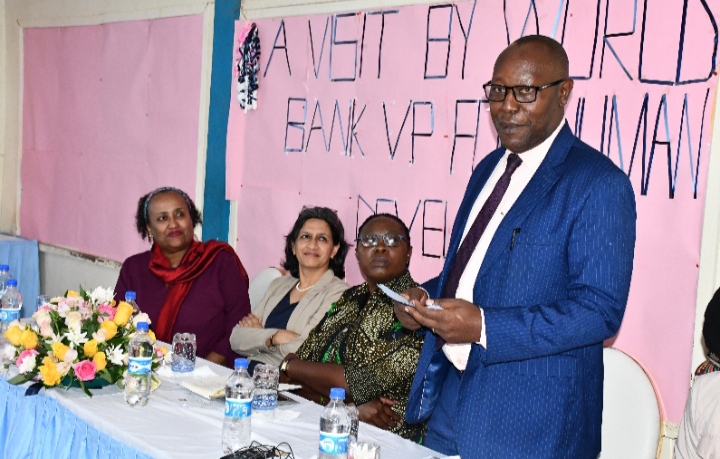Nairobi,
Sunday March 24, 2024
KNA by Joseph Kamolo Mutua
The quality of education in 135 targeted Sub-Counties in Kenya significantly improved in the last six years thanks to the ministry of education through a World Bank funded project.
The Kenya Secondary Education Quality Improvement Project (SEQIP) targeted 135 Sub-counties from 30 Counties which were identified through a rigorous selection criterion resulting to improved quality of teaching among other milestones from 2017 to December 2023.
The key milestones as enumerated by Mr. Elijah Mungai, the Director Directorate of Projects coordination and delivery in the state department for basic education include reduction in teacher shortage for Science, Mathematics and English teachers in targeted areas which was implemented by the Teachers Service Commission (TSC) where 2,592 secondary and 920 primary school teachers were employed.
Director Mungai said the intervention saw live streaming of lessons piloted in 10 satellite schools from two principal schools.
Teachers professional development was enhanced through school based teacher support system for teachers totaling 51,950 in 6,500 primary schools and 2,000 secondary schools.
A total of 2,254,782 Science, Mathematics and English text books were distributed to all grade 7 and 8 learners in 7,852 primary schools while 4,329,057 Science, Mathematics and English text books were distributed to learners in form 1-4 in 2,147 secondary schools. Brailed text books 10,770 in total and 42,546 text books printed and distributed and assistive devices distributed to 2,145 learners with disabilities.
Retention in upper primary school and transition to secondary school in targeted areas improved school learning environment where 1,053 additional classrooms, 861 additional laboratories and 1,896 sanitation facilities and a proposed ultra-modern training facility at CEMASTEA.
The Ministry of Education conducted advocacy and community mobilization social support and gender sensitization programme in 1,476 locations across the 135 Sub-Counties with 1,478,135 sanitary towels for girls being distributed.
A total of 18,000 learners in cohorts of 9,000 each benefited from the Elimu Scholarship Program where the first cohort sat for KCSE in 2023 and recorded an impressive performance with 46 percent qualifying to join university and 82 percent attaining grade C-(minus) and above.
The project enforced systems reforms support through the development and introduction of CBC curriculum designs for Grades 4 to 9 as implemented by the Kenya Institute of Curriculum Development (KICD).
SEQIP strengthened the national system for monitoring learning progress and national examination by Kenya National Examination Council (KNEC) through a baseline and middleline studies to monitor learner achievement (MLA) for form 2 and national assessments for grades 3,4,5, and 6 conducted as well the establishment of a web based competency based assessment (CBA) portal.
The Ministry of Education carried out three policy studies to establish prevalence of gender based sexual violence (GBSV) which resulted to a policy framework for addressing GBSV issues.
Education officials were sensitized on operationalization of gender responsive mechanisms (GRM) structures.
A baseline survey for high dropout rates for upper primary grades 7 and 8 and a capacity assessment for Jomo Kenyatta Foundation (JKF) to coordinate, manage and regulate scholarships were conducted.
The World Bank has since extended the SEQIP project period for an additional year till December 2024 owing to the delays occasioned by the COVID-19 pandemic in 2020.
Courtesy; KNA


